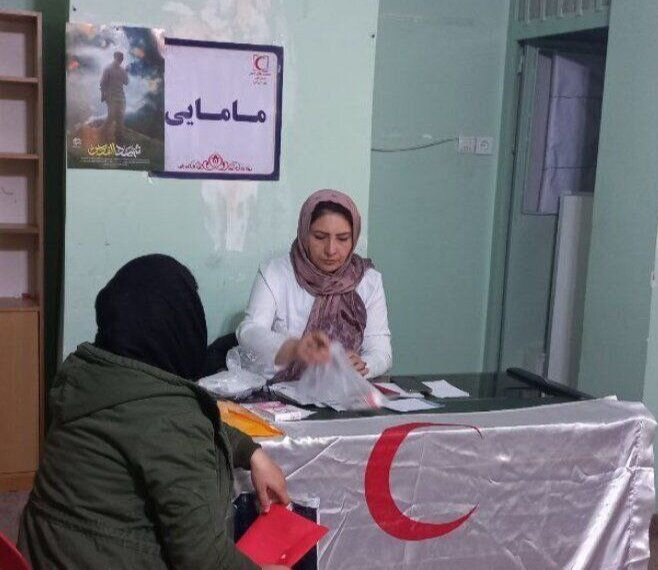Volunteer physicians provide health services in deprived areas

TEHRAN – A total of 159,843 individuals in deprived areas have received health services by the Iranian Red Crescent Society (IRCS) volunteer physicians, an official with the IRCS has said.
Over the past nine months, the IRCS dispatched volunteer physicians to underprivileged areas nationwide with the goal of supporting vulnerable people and improving their health, Mehr news agency quoted Vahid Salimi as saying.
He went on to say that the program involved the active participation of 9,147 general physicians and specialists providing services in various fields such as cardiology, infectious disease, pediatrics, gynecology, obstetrics, ophthalmology, dentistry along with providing nursing services, paramedicine, and rehabilitation.
The treated individuals received free treatment and medicines. Also, some 21,627 food and health packages were distributed among deprived families in the areas, Salimi added.
Health promotion program
In December 2023, Hassan Farshidi, an official with the Health Ministry, said around 400,000 health volunteers are active in the country, acting as the link between the health system and different strata of society.
Once trained and empowered, health volunteers from communities, organizations, tribes, and foreign nationals play a central role in promoting health by people, ISNA quoted Farshidi as saying.
Health promotion programs aim to engage individuals and communities and promote a healthy lifestyle, prevention, and timely response.
IRCS dispatch volunteers
On the occasion of World Volunteer Day, which is celebrated on December 5 every year, volunteer physicians provided free health and pharmaceutical services to people in deprived areas.
“Volunteer physicians will be sent to deprived areas from Ilam, Kermanshah, Yazd, Bushehr, Markazi, West Azarbaijan, and Kerman provinces to serve the people in these areas,” Salimi said.
They would provide free health and pharmaceutical services, including visiting patients, dental and midwifery services, and traditional medicine and acupuncture consultation.
They would also check people’s health, blood pressure, height, and weight.
Moreover, oral and dental health care would be taught to the students of the villages.
The main objective of dispatching volunteers is to improve the health of the villagers due to the unavailability of specialist doctors in these areas and reduce medical expenses.
Volunteers would try to improve the health of the people, provide relief, and help patients by improving the health literacy of society in various fields.
Rural development
Villagers and nomads play a vital role in the political, economic, and social developments of Iran.
Despite their low population, they have a great contribution to all-out national development.
Although oil, industry, and service sectors hold a significant share of the national economy, the rural and nomadic economy is considered an inexhaustible source for the nation, compared to exhaustible natural resources.
Living far from pollution and current problems of cities and being less dependent on oil resources, they play a critical role in sustainable development.
Villagers and nomads take the lead in providing food, food security, and healthy food production.
They have a major role in the tourism and handicraft industry and they are sources of many cultures and traditions in the country playing an important role in ensuring the country's security, especially in borders and remote areas.
MT/MG
